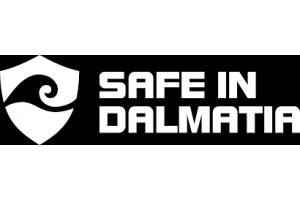HRVATSKI DOM SPLIT: Kontrapost - svjetska i popularna glazba - Cinema - Branka Parlić, klavir
Lokacija: Hrvatski dom Split - Koncertna dvorana Ive Tijardovića (Tončićeva 1)
Vrijeme: 7. lipnja 2024., u 19:30 sati
Cinema - Branka Parlić, klavir - glazba: Philip Glass i Erik Satie
Umjetnica minimalističkih nota, srpska pijanistica međunarodne karijere Branka Parlić, posvećuje se izvedbi glazbe 20. i 21. stoljeća, posebno skladatelja minimalizma i postminimalizma, poput Philipa Glassa, Michaela Nymana, Wima Martensa i Arvoa Pärta. U programu objedinjenom nazivom Cinéma spaja dva različita, a opet vrlo bliska autora, Erika Satieja i Philipa Glassa. Eric Satie, čiji je sažet, ispražnjen glazbeni jezik nagovijestio minimalizam kasnijih skladatelja kao što su John Cage ili John Adams. Glasovite su njegove suradnje s umjetnicima kao što su Jean Cocteau, Sergej Djagiljev ili Pablo Picasso, a manje je poznato da je Satie autor nekih od prvih filmskih partitura – njegova suradnja za film Entr'acte Renéa Claira, urodila je skladbom Cinéma, prvom skladbom osmišljenom tako da bude zvučna pozadina koja se nesvjesno sluša.
Gnossiennes su među najpoznatijim Satiejevim kompozicijama, a inspiracija, pretpostavlja se, dolazi iz Satiejeve povezanosti s gnostičkim sektama. Jedan od najznačajnijih predstavnika minimalizma, Philip Glass, poznati je autor filmske glazbe, njegova se filmska glazba afirmira na koncertnoj pozornici – jedinstvena percepcija vremenskog protoka u glazbi minimalizma sigurno je nešto što je Glassu privuklo Stephena Daldryja, za suradnju na filmu Sati iz 2002. godine. Uz glazbu Sati, u aranžmanu za klavir, na programu su i Glassova antologijska djela, Metamorphosis br. 2 i 3, Glassworks/Opening te Etide za klavir br. 2 i 6.
Eksperimentalni, nadrealistički film Entr'acte, (crno/bijeli, nijemi u trajanju od 20 minuta) emitiran je u pauzi između dva čina baleta Relache. Muziku za balet i za film skladao je Erik Satie (1866-1925), a scenarij potpisuje Francis Picabia (1879-1953). Premijera je održana 1924. godine u Parizu. U partituri pod nazivom Cinema koju je pisao za ovaj kratki film Satie je koristio produžene repeticije i na taj način uklapao trajanje muzike sa kadrovima filma. Iz tog se razloga ova muzika smatra prvom filmskom muzikom.
Prije izvođenja kompozicije i projekcije filma publika će kratkom pričom biti upoznata s bitnim činjenicama vezanim za muziku i film, koji je bio tek drugi film u bogatom filmskom opusu Rene Klera (Rene Clair, 1898-1981), u ulozi režisera.
U filmu se pojavljuje veliki broj aktera tadašnje pariške umetničke scene među kojima su: Francis Picabia, Erik Satie, Man Ray, Marcel Duchamp, Ian Borlin i Rolf de Mare.
Ulaznice za predstavu možete naći na linku: shop.adriaticket.com
Location: Croatian Home Split - Ivo Tijardović Concert Hall (Tončićeva 1)
Time: June 7, 2024, at 7:30 PM
Cinema - Branka Parlić, piano - Music: Philip Glass and Erik Satie
Branka Parlić, a Serbian pianist with an international career, devoted to performing 20th and 21st-century music, especially minimalist and post-minimalist composers like Philip Glass, Michael Nyman, Wim Mertens, and Arvo Pärt. In a program titled "Cinéma," she brings together two different yet closely related composers, Erik Satie and Philip Glass.
Erik Satie, known for his concise, stripped-down musical language that foreshadowed the minimalism of later composers like John Cage or John Adams. Satie's collaborations with artists such as Jean Cocteau, Sergei Diaghilev, or Pablo Picasso are famous. Less known is Satie's role as the author of some of the earliest film scores. His collaboration on René Clair's film "Entr'acte" resulted in the composition "Cinéma," the first piece conceived as background music that is unconsciously listened to.
Gnossiennes are among Satie's most famous compositions, and it is believed that their inspiration comes from Satie's connection to Gnostic sects. Philip Glass, one of the most significant representatives of minimalism, is a renowned film composer. His film music has found acclaim on the concert stage, and his unique perception of the flow of time in minimalist music surely attracted Stephen Daldry for collaboration on the 2002 film "The Hours."
In addition to Satie's music arranged for piano, the program includes Glass's iconic works, "Metamorphosis No. 2 and 3," "Glassworks/Opening," and Etudes for Piano No. 2 and 6.
Before the performance of the composition and the film projection, the audience will be introduced to essential facts about the music and the film through a short story. "Entr'acte," an experimental surrealist film (black and white, silent, lasting 20 minutes), was shown during the intermission of the ballet "Relache." Erik Satie (1866-1925) composed the music for both the ballet and the film, with the scenario written by Francis Picabia (1879-1953). The premiere took place in Paris in 1924. Satie used extended repetitions in the score titled "Cinema," aligning the music's duration with the film frames. For this reason, this music is considered the first film score.
Before the performance of the composition and the film projection, the audience will be briefed with a short story on essential facts related to the music and the film, which was only the second film in the rich filmography of René Clair (1898-1981) as a director.
The film features numerous figures from the Parisian art scene of the time, including Francis Picabia, Erik Satie, Man Ray, Marcel Duchamp, Ian Borlin, and Rolf de Mare.
Tickets for the performance can be found at the link: shop.adriaticket.com











